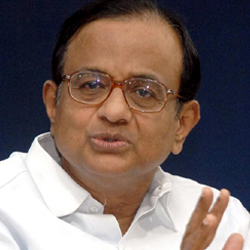No President rule in AP

Union Home Minister P Chidambaram on Wednesday categorically stated that there are no plans of imposing President’s rule in Andhra Pradesh in view of the Constitutional crisis created by the resignations of Legislators from Telangana.
Talking to media persons here, Mr Chidambaram said, “"There is no move to impose President's Rule," when asked to respond to widespread speculation that Central rule can be imposed in the state. The Union Home Minister added that the process of consultations is still on and a final decision on the contentious issue on the separate Telangana statehood demand is still to be taken.
“Congress In-Charge of Andhra Pradesh Affairs Ghulam Nabi Azad is holding discussions with Telangana leaders to find a solution to the issue,” Mr Chidambaram stated, when sought a response to the situation in the region where the 48-hour bandh call paralysed life for the second day on Wednesday.
The Bandh was called by the Telangana Political Joint Action Committee to further build pressure on the Centre to take a decision on the Telangana statehood demand after the resignations of Legislators from almost all parties of the region. Mr Chidambaram said that the Centre was ‘unhappy’ over the resignations and hinted that the High Command is trying to get the Legislators to rethink on their action.
“We will engage the Legislators in consultations. We are unhappy that many Members of Parliament resigned,” the Union Home Minister said. He also expressed the hope that there will not be any breakdown in Law and Order in the region due to the various pro-Telangana parties announcing dharnas, bandhs and rail rokos.
“We understand the provocation for the agitation," Mr Chidambaram said, adding that Central paramilitary forces have been deployed in the state to prevent any untoward incidents. He also appealed to all party leaders not to disturb Law and Order situation. The Union Home Minister also evaded giving a reply when asked if the Centre was contemplating implementing the recommendations given by the Justice Srikrishna Committee in its report, particularly the controversial eighth chapter.




 Botsa to act as bridge on T-issue
Botsa to act as bridge on T-issue